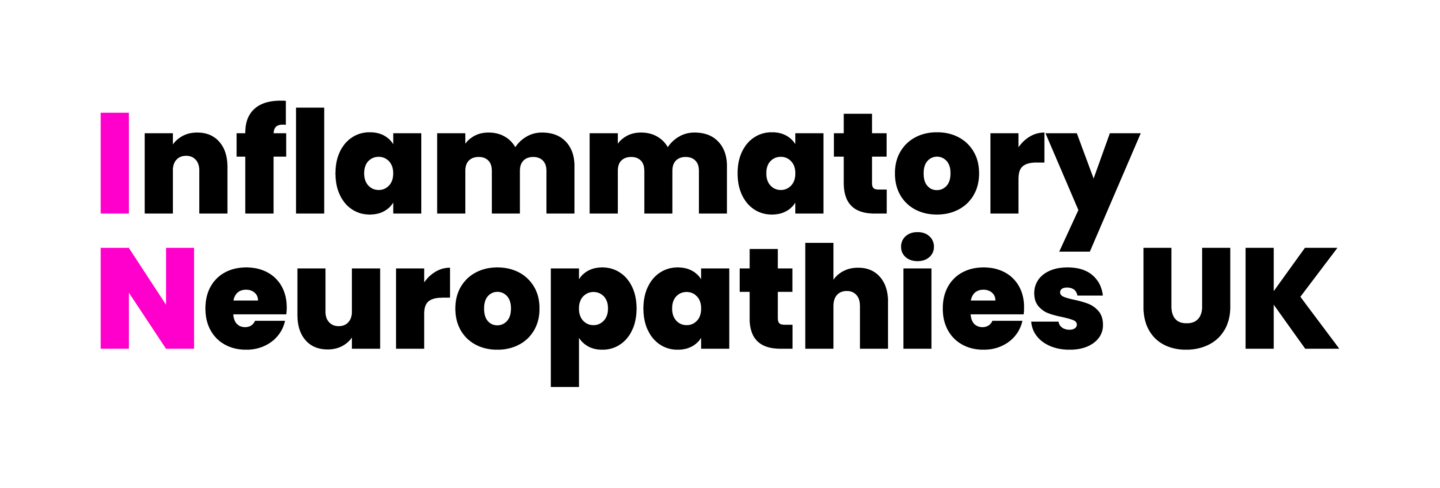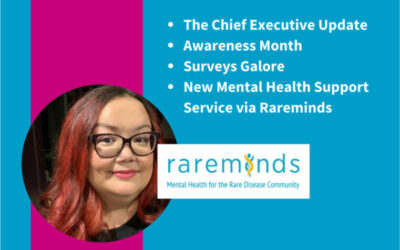What is Living with CIDP like?
Many people want to know what to expect on their CIDP journey, and while it is difficult to predict and important to note that everyone’s journey is different, in this blog we wanted to highlight what living with CIDP is like. This post is part of a wider series about CIDP which you can read on our website.
Daily Living
Let’s face it. Living with CIDP is difficult. Any major health condition will lead to additional challenges, and the symptoms and ongoing issues with CIDP can often require you to undertake a constant balancing act. For most people with a CIDP diagnosis, their life is going to change in one way or another, whether this is little things like managing weakness, or adding a management regime to your daily living, or a significant thing like learning to negotiate the world with crutches or planning work and family around treatment. Setting a clear set of boundaries and understanding and accepting what the ‘new normal’ looks like is essential in learning to live with CIDP.
The Burden of CIDP
Many people talk about the burden of CIDP, and there is currently a lot of research being undertaken about this. In fact, we will have a survey launching about this shortly. We are often told that CIDP can impact so many parts of your life. It can change how you work or prevent you from working, it can impact relationships within families and friendship groups, it can add costs and stress to your life, and it can impact things you do every day. Finding ways to manage and accommodate these burdens so they don’t become overwhelming can be difficult, but are possible. You just need to find ways of managing and adapting to them. However, this can be easier said than done. In next week’s blog we will look at these impacts in more detail.
Physiotherapy and Movement
Exercise and movement, all based around your body’s needs, can make a big difference to living with CIDP. Working with a Neurological Physiotherapist or other specialist can help you to maintain mobility and reduce stiffness, while working with an Occupational Therapist can help you to adapt your home and daily routines to reduce ongoing issues. However, it is important to note that staying active doesn’t mean pushing through pain. It is all about gentle, consistent movement that supports how you move without exhausting you completely.
Emotional Ups and Downs
CIDP can take a physical toll on your body. However, it’s vital that you also consider the emotional side of CIDP. Feelings of isolation, anxiety, and even depression can occur among those with CIDP. Getting the right support at the right time is really important. This could include talking to friends and family, joining online support groups or CIDP communities such as GAIN’s Facebook Group or our Online CIDP Get Togethers, or reaching out for emotional or mental health support when it is needed. Connecting with other people who really understand what you’re going through can be incredibly comforting, especially if you haven’t come across anyone else with CIDP before.
Finding your Rhythm
One of the things that people impacted by CIDP tell us is that it is really important to listen to your body. This might mean resting when you need to, avoiding doing too much, and being kind to yourself on days that feel particularly difficult. It is alright to feel tired and to take a break. After all, you have a chronic long-term condition! It’s also really important to celebrate the small victories, whether that’s taking a walk around the block or simply getting out of bed and brushing your teeth.
Moving forward with the right support
While CIDP can be a lifelong condition, it doesn’t have to define who you are. Many people with CIDP continue to live full, rich lives. Whether you’re newly diagnosed, or you have been managing CIDP for years, remember, you’re not alone. GAIN is here to offer support whenever you need it. If you need some support (or even if you want a chat or a chance to unload, then give us shout on 01529 469910 or email office@gaincharity.org.uk.




